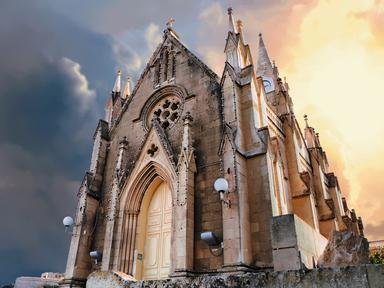
The Christian Calendar Trivia Quiz
Throughout the year the Christian church celebrates various events, most of which have a set date. Can you match the event to the month in which it takes place? Note - these are the dates used by the western churches.
A matching quiz
by rossian.
Estimated time: 4 mins.